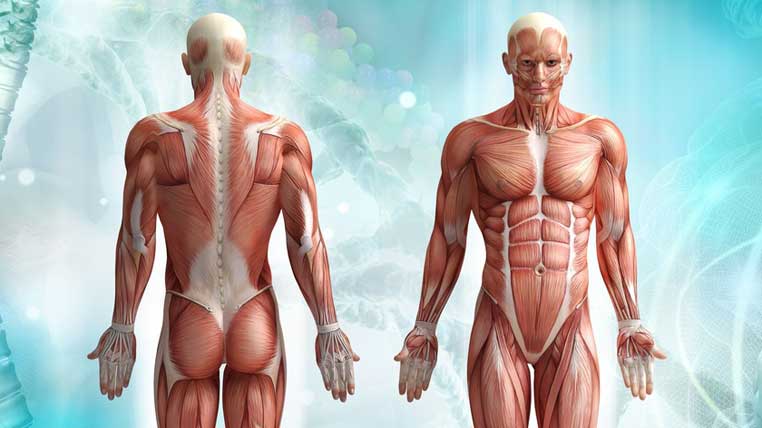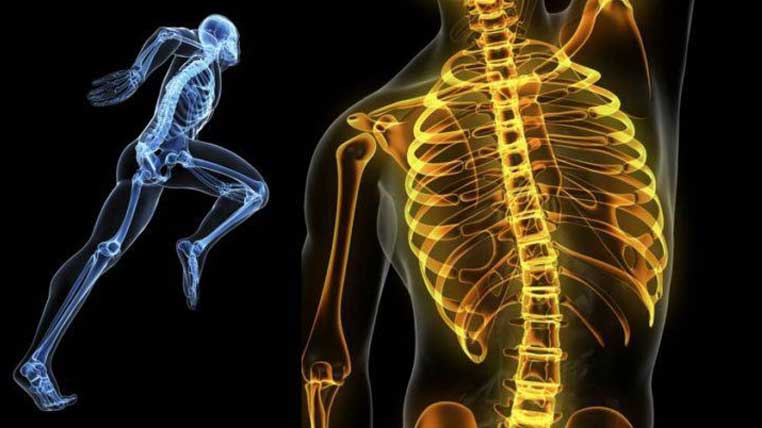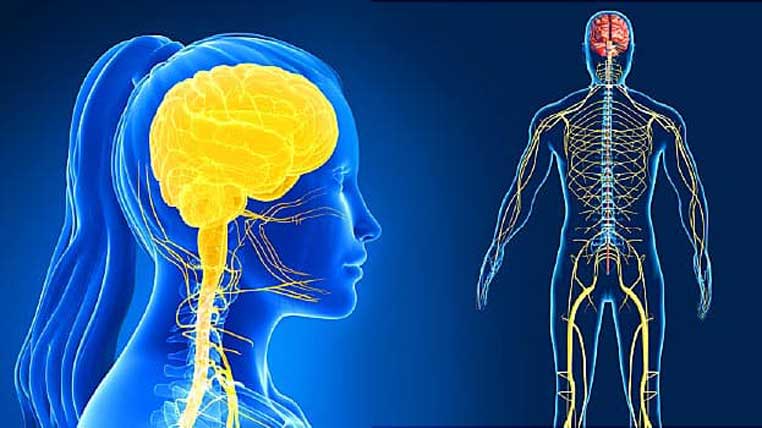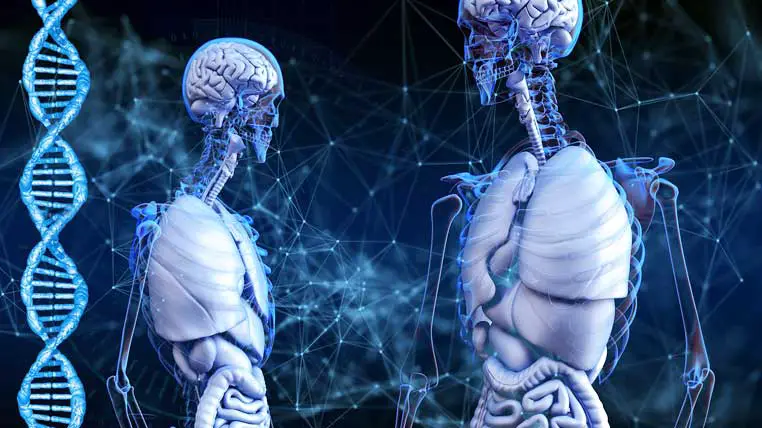The human body is a complex and intricate biological machine that never ceases to amaze us.
It is a wonder of nature that can perform incredible feats and endure extreme conditions.
From the tiniest cell to the largest organ, the human body is a masterpiece of evolution, and its inner workings are fascinating to explore.
This article will delve into some of the most intriguing and surprising facts about the human body that you may not have known before.
These facts will highlight our body’s incredible capabilities and functions, from the microscopic to the macroscopic level.
Get ready to be amazed by the incredible world of the human body.
Interesting Facts about the Human Body
1. Did you know that a single square centimeter of skin contains around 300 sweat glands?
2. Have you ever wondered why the human body emits foul-smelling gases? It’s due to bacteria in the intestine that are released into the air.
3. There are approximately 1,000 types of bacteria living on the skin.
4. A sudden temperature change can cause hiccups.
5. The lung contains over 300 million balloon-like alveoli and is the only organ that can float on water.
6. Facts about the human body – The skin makes up about 15% of the body’s total weight.
7. Even when we’re in good health, millions of germs reside in our lungs.
8. The nose is a vital organ that acts as a filter, heater, and humidifier. Inside the nose is a layer called the turbinates that contain dozens of blood vessels to warm the air we breathe. Ciliated cells in the coating also help humidify the air before it reaches the lungs.
9. Coughing and sneezing are natural defense mechanisms that protect the body from foreign substances.
10. The human body produces an astonishing 25 million new cells every second.
11. The legs have the thickest skin, while the eyelids have the thinnest layer of skin.
12. Facts about the human body – The human body is made up of approximately 60% water.
13. A woman named Beulah Hunter gave birth in Los Angeles over 100 days past her due date. This was the longest pregnancy ever recorded, lasting for 375 days.
14. Babies blink only once or twice per minute, while adults blink around 20 times per minute or 10 million times a year.
15. The ears and nose continue to grow steadily, despite growth stopping after puberty, with gravity being the primary cause.
16. The cornea, the transparent front part of the eyes, doesn’t contain blood vessels and receives oxygen directly from the air.
17. Facts about the human body that fans of the movie Fight Club would know – The human body contains enough fat for seven bars of soap.

18. The skin serves more than just the role of covering muscles. It can also be a warning sign in case something bad happens in your body (like the development of a disease or health condition).
19. Teratomas, a rare type of tumor, can grow hair and teeth inside the human body.
20. At birth, all humans have a reflex that slows down the body’s functions when they dive underwater.
21. Did you know that human beings glow in the dark? Although, the glow is too faint to be detected by the human eye.
22. The human body is a marvel of nature. It contains one of each of the essential organs required to survive. However, for the organs that come in pairs, like kidneys, just one is enough to survive.
23. The human body is capable of achieving many incredible things. One such example is the oldest woman to give birth. The woman was 66 years old when she gave birth to a perfectly healthy baby.
24. The small intestine, an essential part of the digestive system, has an impressive length of approximately 7 meters.
25. Facts about the human body – Humans are the only mammals that can’t breathe and swallow at the same time. This is a bit of a flawed design, no doubt.
26. The shortest pregnancy recorded was of a woman who gave birth at just 22 weeks, and despite several complications, the baby survived.
27. The human body undergoes various changes throughout the day. For instance, a person is slightly taller in the morning than in the evening.
28. Humans may not be the strongest, fastest, or largest animals on Earth, but they can run long distances. Humans are excellent endurance runners with long legs, upright posture, and efficient heat dissipation through perspiration. Prehistoric humans used the “persistence hunting” technique, where they hunted prey by following it over long distances until the animals were exhausted to death.
29. Facts about the human body – The stomach contains acid so strong that it can even dissolve metal.
30. Over a lifetime, the human body produces a whopping 25,000 liters of saliva, enough to fill almost two swimming pools.
31. The human body sheds about 4 kg of skin each year as dead skin cells are replaced with new ones.
32. The tiniest muscle in the human body is located in the inner ear.
33. Muscles comprise approximately 40% of the total body weight, making them an integral part of human physiology.
34. The heaviest muscle in the human body is the heart, which is responsible for pumping blood throughout the body.
35. Facts about the human body – The human nose can detect over one trillion different scents.
36. The human eye can distinguish approximately 10 million different colors.
37. The surface area of a human lung is roughly the same size as a tennis court.
38. Humans can differentiate between sweet, sour, salty, bitter, and umami tastes.
39. The human liver can regenerate itself from as little as 25% of its tissue.

Interesting Facts about the Human Body: The Circulatory System
1. A woman’s heart beats slightly faster than a man’s heart, another example of the differences between the genders.
2. Blood makes up about 8% of the total body weight.
3. The human body has an extensive network of blood vessels. The average adult human has 100,000 miles of blood vessels in their body. If we tie them together, we can obtain one single string long enough to circle the equator four times. I suggest you don’t try that, though.
4. The heart, the most vital organ in the human body, beats approximately 100,000 times a day.
5. Heart attacks are more common on Mondays than on any other day of the week.
6. The oldest known heart defect was detected in a 3,500-year-old Egyptian mummy, which is a testament to the advanced medical knowledge of the ancient Egyptians.
7. The sound of the heartbeats is caused by the opening and closing of the heart valves.
8. A human heart can beat outside the body, which is an astonishing medical marvel that makes heart bypass surgery possible.
9. Facts about the human body – The heart creates enough pressure to squirt blood 30 feet away.

Interesting Facts about the Human Body: The Skeletal System
1. Human teeth, which are not classified as bones, are an essential part of the skeletal system. They are strong and sturdy enough to match the strength of shark teeth.
2. Facts about the human body – Over half of the bones in the human body are located in the hands, wrists, legs, and ankles.
3. The femur, also known as the thigh bone, is the largest bone in the human body, while the stirrup bone inside the ear drum is the smallest.
4. We have approximately 300 bones when we are born, but some fuse together as we grow. Hence, as an adult, we have 206 bones.
5. Bones are living tissues that regenerate every seven years, meaning that we have a new skeleton every seven years.
6. Besides calcium and phosphorus, bones contain sodium, collagen, and minerals.
7. The enamel of teeth is the hardest substance in the body, surpassing the strength of bones.
8. Facts about the human body – One-third of the length of teeth is below the gum line.
9. Interestingly, baby teeth develop before birth but only erupt when children are between six and twelve years old.
10. Bones can heal themselves by producing new cells. Therefore, a fracture can be healed with a plaster cast, which immobilizes the bone, allowing it to regenerate.
11. Facts about the human body – The knee joint is the largest joint in the human body.
12. Human bones are stronger than steel and can support up to 12,000 pounds of weight on certain angles.

Interesting Facts about the Human Body: The Nervous System
1. The gut-brain axis links the digestive system to the brain, which means that any brain disorder or stress can affect how the body digests food.
2. Although the brain reaches 90% of its size by age six, it is fully formed at age 21, and neurons begin to decline after this age. By age 75, at least 10% of neurons disappear.
3. The speed at which information travels between neurons is an astonishing 400 km/h.
4. Facts about the human body – The human brain can survive for three to six minutes without oxygen.
5. An adult brain weighs around three kilograms, with men having slightly bigger brains than women.
6. Facts about the human body – The brain consists of approximately 60% fat.
7. The brain’s storage capacity is nearly limitless, with over 86 billion neurons forming over 1,000 trillion connections.
8. The human brain can process and store as much information as the entire internet.
9. Facts about the human body – The brain is most active during sleep, especially at night.
10. Despite accounting for only 2% of body mass, the brain uses up to 20% of the body’s oxygen and blood.
11. The brain’s structure constantly changes as new neural connections form every second.
12. The longest nerve in the body is the sciatic nerve, which extends through the spine and reaches the toes.
13. Facts about the human body – In extreme cases of starvation, the brain can begin to “eat” itself.
14. During pregnancy, a woman’s brain undergoes a slight reduction in size, a phenomenon commonly known as the “pregnancy brain.”
15. The human body can produce its own painkillers, known as endorphins.
The human body is an incredible work of nature that never ceases to amaze us.
From the microscopic cells to the macroscopic organs, our body can perform incredible feats that are still being discovered and studied by scientists.
By exploring the fascinating world of the human body, we can gain a greater appreciation for this complex and intricate machine that we call home.
At Ancient Theory we only use trusted sources to document our articles. Such relevant sources include authentic documents, newspaper and magazine articles, established authors, or reputable websites.
- Rukevwe Ochuko - 23 Shocking Facts About The Human Body You Should Know. thestreetjournal.org.
- Human skeleton. wikipedia.org. [Source]
- These 35 Fascinating Health And Body Facts Will Surprise You. purple.com.
- Circulatory System. clevelandclinic.org. [Source]
- The human skeleton. britannica.com. [Source]
- 10 Amazing Facts About The Human Body. osgpc.com.






